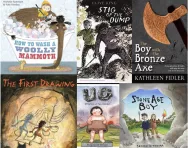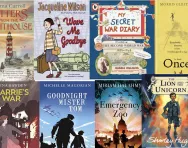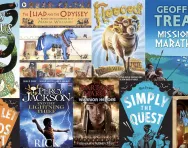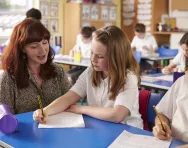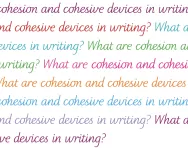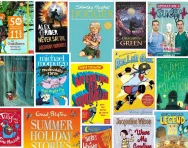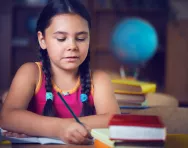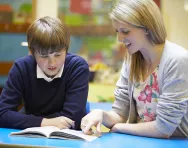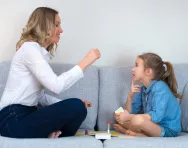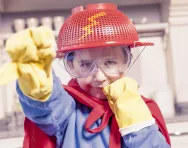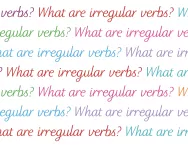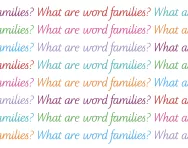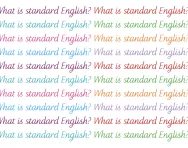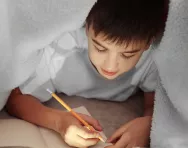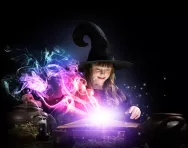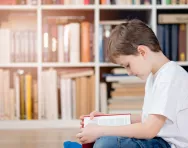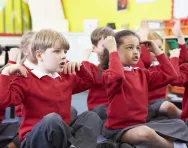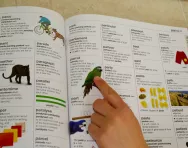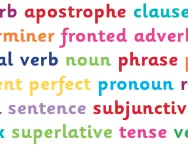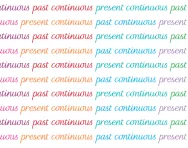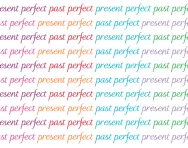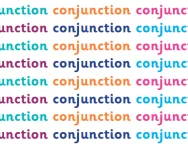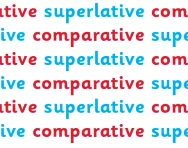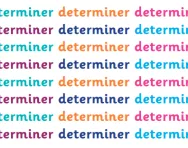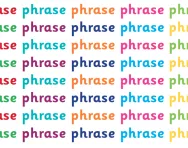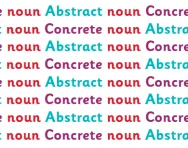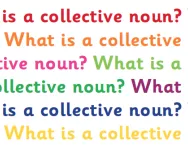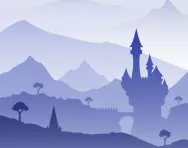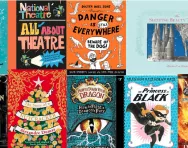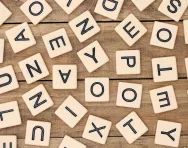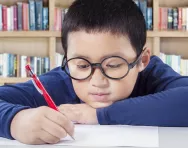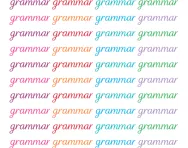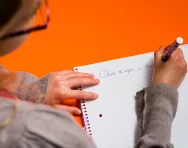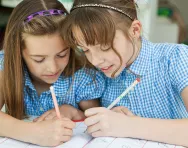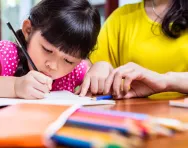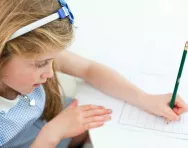Best children's books about the Stone Age
Life in prehistoric times is incredibly hard to picture, but teacher Ashley Booth's pick of the best Stone Age stories and novels for kids will help transport your child (far) back in time .
Best children's books about WWII
World War II was a pivotal time in British history. These page-turning reads will give your children a real insight into what life was like for both children and adults, on the battle field and on the Home Front. By Ashley Booth
Best children's books about Ancient Greece
Enter a world of gods, legends and mythical creatures... Y6 teacher and kids' literature lover Ashley Booth shares his top picks for inspiring children's interest in Ancient Greece and its culture.
How English teaching has changed since we were at school
Feeling out of touch with your child's literacy learning? We look at how times have changed in the classroom since you were at school yourself.
What are cohesion and cohesive devices in writing?
As children start to develop their own writing style in primary school they will be asked to use "cohesive devices" to improve their writing and help it flow. We explain what "cohesion" means in fiction and non-fiction writing.
16 of the best books for children for summer 2017
There's no better way to while away the long summer holidays than getting lost in a book. From beautiful picture books to pore over to thrilling adventures and historical tales to savour, we pick some of the best new kids' books for summer 2017.
Best creative writing books for kids
Does your child love writing stories but feel daunted by the blank page? Get them started with creative writing and boost their confidence with a "workbook" packed with story starters, technique tips, example passages and more. Whether they're planning an epic comic strip series, a poetry collection, a ghost story or a fairy tale, these write-your-own-story guides will help them put pen to paper.
Best girl-empowering books for kids
Introduce the whole family to the achievements of female scientists, explorers, artists, physicians, writers and more in our round-up of the best girl-empowering books for kids. From KS1 picture books and tales to inspiring grown-up "bedtime stories", we love these girl-power celebrations of outstanding people.
16 ways to help a struggling reader in Key Stage 2
Is reading yet to click for your child? These ideas, from hi-low readers to establishing a reading buddy pet, will help set them on the right track.
Best spelling board games for children
Turn the weekly spelling test preparation from chore into challenge with our pick of the best spelling board games for children and families. From brand-new readers and writers to spelling bee champions, there's plenty for even the most competent speller to enjoy!
18 must-have costume-making supplies for World Book Day and beyond
Never again will you be caught out by a last-minute outfit request from your primary school child with these craft basics. Stock up today!
What are irregular verbs?
Children learn to use irregular verbs naturally as they speak and write English, but will also understand more about them during their time at primary school. We explain how irregular verbs are introduced in the classroom in our guide for parents.
What are word families?
Understand more about how children are introduced to word families, made up of words that share a root word modified by different prefixes and suffixes, in our guide for primary-school parents.
What is Standard English?
Standard English is accepted as the "correct" form of English, used in formal speaking or writing. In primary school children are expected to learn to write according to the rules of Standard English.
8 great reasons for your child to keep a diary
Writing a diary is more than just a way for your child to record their daily life: it can have impressive educational benefits, too.
Best Halloween books for children
Witches and werewolves and vampires, oh my! Help your child get into the Halloween spirit with our round-up of the best ghost stories, haunted-house thrillers and supernatural tales for children. Not recommended for after-dark reading...
Expanding your child’s reading tastes
Is your child stuck in a reading rut? Lucy Dimbylow takes a look at how to encourage them to test the water with different styles and genres of fiction and non-fiction.
Best learning songs
Could songs and music help your child learn and remember English, maths and science facts? We pick our favourite learning songs, covering everything from adverbs and angles to onomatopoeia and photosynthesis.
Best reference books for children
Reference books and dictionaries offer us information that's accurate, well researched and beautifully presented and are invaluable when you're working on a homework project. From atlases to dictionaries and encyclopedias, we recommend some of the best English, maths, science, history and geography reference books for primary-school children.
Primary grammar glossary for parents
Do you know the difference between the subject and the subjunctive? Can you identify a relative clause or find a phrase? From active voice to verb tense, TheSchoolRun's primary-school grammar glossary offers a complete guide to all the grammatical concepts children are taught in EYFS, KS1 and KS2 English. As well as basic definitions we offer more detailed explanations, teachers' tips and examples for each grammar term.
What are the present continuous and the past continuous?
We use the present continuous and past continuous verb tenses when talking or writing about actions that continue or continued over a period of time In our parents' guide to the continuous or progressive verb tenses we explain what children are taught in the primary-school classroom.
What are the present perfect and the past perfect?
We use the present perfect and past perfect verb tenses when talking or writing about actions that are completed by the present or by a specific moment in the past or future. In our parents' guide to the perfect verb tenses we explain what children are taught in the primary-school classroom as part of the grammar curriculum.
What is the subjunctive?
Your child will learn about the subjunctive form as part of the Year 6 grammar curriculum. We explain what KS2 parents need to know about this verb form and how to recognise and use it correctly.
What is a conjunction?
Conjunctions are joining words that link different parts of sentences. In our parents' guide we explain how children learn about conjunctions as part of the primary-school grammar curriculum.
What are comparatives and superlatives?
We use the comparative and superlative forms of adjectives and adverbs to compare things, people, actions and states in our writing. Find out how your child is introduced to this concept, how they will learn to form the comparative and superlative and how they will practise using them in the primary-school classroom.
What is a determiner?
Determiners (a, the, many, one, my, their) identify nouns and are taught as part of the Y5 and Y6 grammar curriculum. We explain what primary-school parents need to know.
What is a phrase?
A phrase is a small group of words within a clause. We explain how children are taught about clauses as part of the primary-school grammar curriculum and what you need to know to support their learning at home.
What are concrete and abstract nouns?
Concrete and abstract nouns explained for primary-school parents, including examples of how your child might be introduced to them in the classroom.
What is a collective noun?
Collective nouns explained for primary-school parents, including examples of collective nouns and how they are used.
What are transitive and intransitive verbs?
Help your child with Year 6 grammar and understanding how sentences are constructed with our parents' guide to transitive and intransitive verbs.
Books or e-books: which are best for your child?
Reading purists may look down on e-books, but they could have some surprising benefits for your primary school child.
Teachers' tips for creative writing
How can children get to grips with creative writing? We asked teacher and author Jacqueline Harris for her insider advice.
16 of the best new books for children for Christmas 2015
Looking for the perfect books for your child to find under the tree? Whatever their interests or reading ability, there's a fantastic selection on offer this Christmas, from the latest Rick Riordan blockbuster to new classics, non-fiction treasures to pore over and laugh-out-loud funny reads. The holidays will be story-filled!
9 strategies for learning primary school spellings
If learning spellings always ends in tears and tantrums, trying another technique could help make it a less stressful process. We've rounded up the best methods to try.
What is a pen licence?
Earning a pen licence is a proud moment for many primary-school children, but what does your child need to do to achieve this milestone?
Grammar in primary school
From abstract nouns to verb tenses and the passive voice, your child will be taught lots of grammatical terminology and concepts during their time in primary school. Find out more about what they learn, when, and how grammar knowledge is tested in KS1 SATs and KS2 SATs.
6 ways to bring creative writing to life
Does your child’s writing lack a certain spark? We asked the experts for their top tips for injecting some colour into primary-school children's prose.
Creative writing prompts for kids
From pictures to music, using prompts can inspire your child to produce great writing. We look at the benefits of creative writing prompts, and how to use them.
Editing creative writing
Learning how to revise a piece of written work is an important skill for primary school children, and one that it’s never too soon to help them master.
How to encourage a reluctant writer
Are you longing for the day when your child produces a brilliant story all on their own? We look at some tried-and-tested techniques for getting unwilling writers to find their creative side.
